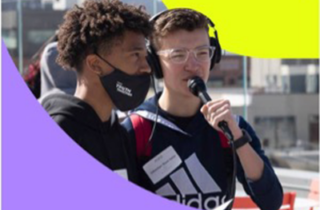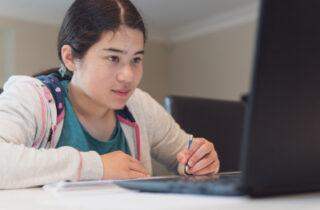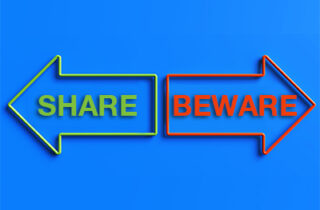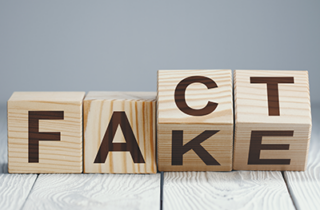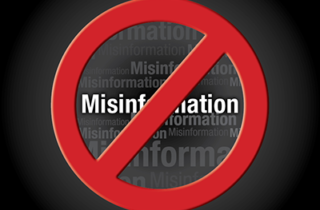Presented by Maura Nugent, English and ESL Teacher, Chicago Public Schools (IL); Jennifer Velazquez, English and Film Studies Teacher, John Hancock College Prep (IL); and Rachel Roberson, Senior Program Manager – Education Content, KQED
Presented by Tali Horowitz, Director of East Coast Education, Common Sense Education; and Sue Thotz, Director of Education Outreach, Common Sense Education
Moderated by Jennifer Ehehalt, Sr. Regional Manager, Midwest, Common Sense Education
Presented by Dr. Melissa Clarke, Physician, Author, Speaker, and Patient Advocate; and Brittney Smith, Senior Manager of Education Partnerships, News Literacy Project
Presented by Merek Chang, Secondary Science and Technology TOSA, Hacienda La Puente Unified School District (CA); Rachel Roberson, Senior Program Manager – Education Content, KQED; and Angel Valerio, STEM Program Manager, KQED
Presented by Alexa Volland, Senior Manager of Educator Professional Learning, The News Literacy Project; and Brittney Smith, Senior Manager of Education Partnerships, The News Literacy Project
Presented by Katie McNamara, Teacher Librarian at North High School (CA), and Program Director at Fresno Pacific University; and Lori Lynch, VP of Professional Learning, Britannica Education
Presented by Adriana Lacy, Journalist, Founder and CEO, Adriana Lacy Consulting; Shane Harris, Staff Writer, Intelligence and National Security, The Washington Post; Indira Lakshmanan, Global Enterprise Editor, The Associated Press; Mindy Katz, English Teacher, JSU Sponsor, Abington Senior High School (PA); and Brittney Smith, Senior Manager of Education Partnerships, East, The News Literacy Project
Presented by Dr. Jeff Wilhelm, Distinguished Professor of English Education, Boise State University, and Director, Boise State Writing Project; Brittney Smith, Senior Manager of Education Partnerships (East), News Literacy Project; Pamela Brunskill, Senior Manager of Education Design, News Literacy Project; and Shaelynn Farnsworth, Senior Director of Education Partnership Strategy, News Literacy Project
Presented by Angel Valerio, Program Manager, STEM Education Professional Learning, KQED; Rik Panganiban, Program Manager, Online Learning, KQED; and Mary Kate Lonergan, Eighth-Grade Social Studies Teacher, Fayetteville-Manlius Central School District (NY), and KQED Media Literacy Innovator
Presented by Alexa Volland, Senior Manager, Educator Professional Learning, News Literacy Project; Jill Hofmockel, Teacher-Librarian, West High School (IA); Molly June Roquet, Education Librarian, Saint Mary’s College of California; and Shaelynn Farnsworth, Senior Director of Education Partnership Strategy, News Literacy Project


